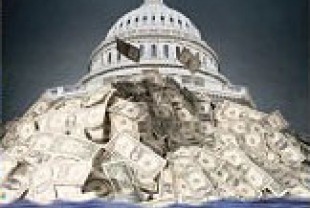The vivid images of New Orleans remain in our minds — the abandoned and frightened African-Americans stranded on roofs of houses, swimming amidst debris in toxic flood waters, or jammed together in a stadium with thousands of other homeless people. Little did they know then that their nightmare would continue three years after Hurricane Katrina. Help has been slow in coming, and many of those in the St. Bernard Parish of New Orleans feel betrayed by the government. They, like many journalists, whistle blowers, policy analysts and scientists are convinced that this disaster was "manmade."
Time magazine's Michael Grunwald states: "If an unsafe building falls down, you wouldn't blame the people inside it and you wouldn't blame the first responders if they were a little slow getting to the scene. You'd want to look at the architect and the construction." According to those who have studied the tragedy from many different angles, those most culpable in the Katrina disaster are the Army Corps of Engineers They were the ones in charge of building the Mississippi River-Gulf Outlet Canal, known as "Mr. Go" which created a funnel effect for the hurricane when it hit New Orleans. They were the ones who cut corners and created levees that could not withstand the surge. They were the ones whose piecemeal approach to solving problems put the city at risk. They were the ones who were not regulated and wasted millions of dollars at the public's expense.
This hard-hitting documentary directed by Leslie Carde and narrated by Richard Dreyfuss is a cautionary tale about the havoc caused when care of America's infrastructure is bungled and mismanaged. What happened in New Orleans can happen elsewhere in the future as local governments try to deal with crumbling and unstable bridges, dams, levees, and highways. Citizens in California and Florida will have to think again after seeing this documentary about the reliability of levees built and supervised by the same Army Corps of Engineers.
Special DVD features include an interview with director Leslie Carde; bonus interviews; "Whistleblowers, Revolving Doors, Scratching Backs"; and a resource guide.
